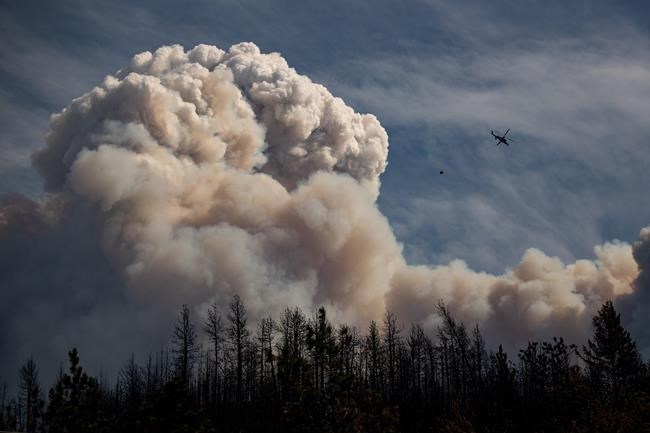VANCOUVER — A British Columbia Supreme Court justice has refused to certify a class-action lawsuit linked to the wildfire that destroyed the village of Lytton in 2021, but the ruling also allows for an amended claim, potentially keeping the lawsuit alive.
Chief Jordan Spinks of the Lytton-area Kanaka Bar Indian Band is the only remaining plaintiff in the claim after the death of fellow Lytton resident and plaintiff Chris O'Conner.
Spinks argues the Canadian National and Canadian Pacific railways, along with the Attorney General of Canada, Transport Canada and others "caused or contributed" to the devastating wildfire that levelled most of Lytton and killed two people.
But the ruling from Chief Justice Christopher Hinkson finds "deficiencies" he says make it "plain and obvious" that the suit will fail, such as overly broad allegations or a lack of clarity about the special damages class members might have suffered.
Hinkson writes that although the suit doesn't meet the criteria for a class-action case, he agrees it can be rewritten "with the benefit of (his) reasons," and resubmitted.
The claim seeks damages, alleging that a westbound CP coal train, being operated at the time by a CN crew, passed through Lytton moments before flames broke out near the tracks and quickly spread into the village, one day after it had set an all-time Canadian heat record of 49.6 C.
In refusing to certify the suit, Hinkson found negligence allegations were "overly broad" and don't lay out a specific case against each defendant.
"In particular, I find that there are no clear material facts alleged as to how the defendants allegedly caused the wildfire," said Hinkson in the ruling posted online on Thursday.
The chief justice also ruled loss claims were ambiguous, writing "the same broad material facts are alleged on behalf of all of the class members despite the fact that they suffered differing injuries and some only suffered economic losses."
The cause of the 2021 wildfire remains undetermined.
A separate lawsuit, filed by the Village of Lytton and the Thompson-Nicola Regional District alleges Transport Canada, CN and CP rail are accused of being negligent for allowing train travel through Lytton during the 2021 heat dome.
The suit, seeking general and special damages and costs, alleges the railways failed to ensure braking systems and other train equipment was safe, that reasonable fire prevention methods were not used and crews failed to watch for smoke or fire along the tracks.
The Insurance Bureau of Canada last year estimated insured losses of the destruction in Lytton at $102 million.
The 2021 heat dome was one of the most extreme weather events in recent Canadian history, and was blamed for more than 600 deaths in B.C.
This report by The Canadian Press was first published Aug. 11, 2023.
The Canadian Press



